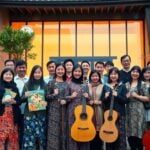When embarking on the journey of applying for a scholarship, the first and foremost step is to thoroughly comprehend the selection criteria set forth by the awarding body. These criteria serve as a roadmap, guiding applicants toward what the scholarship committee values most in potential recipients. Typically, selection criteria encompass a range of factors, including academic performance, leadership qualities, community involvement, and personal attributes such as resilience and motivation.
By dissecting these criteria, applicants can gain insight into the specific qualities and experiences that the committee seeks, allowing them to align their applications accordingly. It is essential to approach this stage with a critical eye, as a nuanced understanding of the selection criteria can significantly enhance the quality of an application. Moreover, understanding the selection criteria goes beyond mere recognition; it requires applicants to engage in self-reflection and assessment.
This introspective process involves evaluating one’s own experiences, skills, and aspirations in relation to the scholarship’s objectives. For instance, if a scholarship emphasizes community service, an applicant should consider their past volunteer work and how it reflects their commitment to social responsibility. By mapping personal experiences to the selection criteria, candidates can identify gaps in their profiles and areas where they can further develop or emphasize their strengths.
This foundational understanding not only prepares applicants for crafting compelling narratives but also instills confidence as they navigate the competitive landscape of scholarship applications.
Key Takeaways
- Understanding the selection criteria is crucial for a successful scholarship application.
- Tailoring your responses to the selection criteria shows your commitment and understanding of the scholarship requirements.
- Providing evidence and examples to support your responses adds credibility to your application.
- Highlighting your achievements and experiences demonstrates your qualifications for the scholarship.
- Demonstrating your fit with the scholarship’s goals and values shows your alignment with the organization’s mission and vision.
- Seeking feedback and refining your responses can help improve the quality of your application.
Tailoring Your Responses to the Selection Criteria
Understanding the Selection Criteria
To effectively apply for a scholarship, it is essential to have a firm grasp of the selection criteria. Once this is achieved, the next step is to tailor responses in a way that resonates with the specific values and expectations outlined by the scholarship committee. A generic response may fail to capture the attention of reviewers who are looking for authenticity and relevance.
Creating a Compelling Narrative
Applicants should strive to create a narrative that weaves their unique experiences into a cohesive story that aligns with the scholarship’s mission. This requires careful consideration of language, tone, and structure, ensuring that each response is not only informative but also engaging. In tailoring responses, it is crucial to employ specific examples that illustrate how one meets each criterion.
Using Specific Examples and Varied Language
For instance, if a scholarship prioritizes leadership skills, an applicant might recount a particular instance where they led a team project or initiated a community program. By providing concrete examples, candidates can demonstrate their capabilities in a tangible way, making their application more memorable. Additionally, using varied language and avoiding clichés can help maintain the reader’s interest while showcasing individuality.
Creating a Compelling Case
Ultimately, tailored responses should reflect both an understanding of the scholarship’s goals and a genuine representation of the applicant’s journey, creating a compelling case for why they deserve to be awarded the scholarship.
Providing Evidence and Examples

The importance of providing evidence and examples in scholarship applications cannot be overstated. Scholarship committees are tasked with evaluating numerous applications, often under tight deadlines; thus, they seek clear and compelling evidence that supports an applicant’s claims. This evidence can take many forms, including academic transcripts, letters of recommendation, and personal statements that highlight relevant experiences.
However, it is the personal anecdotes and specific examples that truly bring an application to life. By illustrating achievements with concrete instances—such as leading a successful fundraising campaign or overcoming significant challenges—applicants can create a vivid picture of their capabilities and character. Furthermore, evidence should not only demonstrate past accomplishments but also indicate potential for future success.
For example, if an applicant discusses their involvement in a research project, they should also articulate how this experience has prepared them for future academic endeavors or career aspirations. This forward-looking perspective adds depth to an application and signals to the committee that the candidate is not only reflective but also proactive about their growth and development. By weaving together past experiences with future ambitions, applicants can present a well-rounded narrative that underscores their suitability for the scholarship while providing compelling evidence of their qualifications.
Highlighting Your Achievements and Experiences
In any scholarship application, highlighting achievements and experiences is paramount to standing out among a sea of candidates. Achievements can encompass academic accolades, extracurricular involvement, or personal milestones that showcase resilience and determination. It is essential for applicants to curate a list of their most significant accomplishments and select those that best align with the scholarship’s criteria.
For instance, if applying for a scholarship focused on innovation in technology, an applicant might emphasize their participation in coding competitions or projects that demonstrate creative problem-solving skills. By strategically selecting achievements that resonate with the scholarship’s mission, candidates can effectively capture the attention of reviewers. Moreover, experiences extend beyond formal achievements; they include life lessons learned through challenges faced along the way.
Sharing stories of overcoming adversity or navigating complex situations can provide insight into an applicant’s character and determination. For example, discussing how one balanced academic responsibilities with part-time work or family obligations can illustrate strong time management skills and resilience. These narratives not only humanize the application but also allow committees to connect with candidates on a personal level.
Ultimately, by highlighting both achievements and meaningful experiences, applicants can create a compelling narrative that showcases their unique journey and reinforces their candidacy for the scholarship.
Demonstrating Your Fit with the Scholarship’s Goals and Values
A critical aspect of any successful scholarship application is demonstrating alignment with the scholarship’s goals and values. Each scholarship is established with specific objectives in mind—whether it be fostering leadership in underrepresented communities or promoting academic excellence in STEM fields. Therefore, applicants must articulate how their personal values and aspirations resonate with those of the scholarship provider.
This alignment not only strengthens an application but also signals to the committee that the candidate is genuinely invested in contributing to the scholarship’s mission. To effectively demonstrate this fit, applicants should conduct thorough research on the scholarship organization and its initiatives. Understanding its history, values, and impact can provide valuable context for crafting responses that reflect shared goals.
For instance, if a scholarship emphasizes environmental sustainability, an applicant might discuss their involvement in eco-friendly projects or initiatives aimed at raising awareness about climate change. By connecting personal experiences to the scholarship’s mission, candidates can present themselves as not just recipients of financial support but as active participants in advancing the organization’s objectives. This strategic alignment enhances the overall narrative of the application and underscores the applicant’s commitment to making a meaningful contribution.
Seeking Feedback and Refining Your Responses

Seeking Feedback and Refining Responses
The final stage in preparing a compelling scholarship application involves seeking feedback and refining responses based on constructive criticism. Engaging peers, mentors, or educators in this process can provide fresh perspectives that enhance clarity and impact. Often, individuals who are familiar with the selection criteria can offer valuable insights into how well an applicant has articulated their qualifications and experiences.
The Benefits of a Collaborative Approach
This collaborative approach not only helps identify areas for improvement but also fosters a sense of community among applicants who share similar goals. Refining responses based on feedback is an iterative process that may require multiple revisions before reaching its final form. It is essential for applicants to remain open-minded during this stage; constructive criticism can lead to significant improvements in clarity and effectiveness.
Revisiting and Refining Responses
Additionally, revisiting responses after some time has passed can provide clarity on areas that may need further development or simplification. This allows applicants to approach their responses with a fresh perspective and make necessary adjustments.
Demonstrating Diligence and Dedication
Ultimately, this commitment to refinement demonstrates diligence and dedication—qualities that scholarship committees value highly in potential recipients. By investing time in seeking feedback and making necessary adjustments, applicants can significantly enhance their chances of success in securing funding for their educational pursuits.
When preparing your scholarship application and addressing the selection criteria, it’s crucial to demonstrate how your goals align with the objectives of the funding organization. For instance, if you are applying for a scholarship that emphasizes community impact and sustainability, you might find it beneficial to refer to related opportunities such as the Call for Good Practices on Employability. This event focuses on sharing and promoting effective strategies in enhancing employability, which could be closely related to your educational and career aspirations, thereby strengthening your application by showing a proactive engagement with relevant initiatives.
FAQs
What are selection criteria in a scholarship application?
Selection criteria in a scholarship application are the specific qualifications, attributes, and experiences that the scholarship committee uses to evaluate and compare applicants. These criteria may include academic achievement, leadership skills, community involvement, and personal qualities.
Why is it important to address selection criteria in a scholarship application?
Addressing selection criteria in a scholarship application is important because it allows applicants to demonstrate how they meet the specific qualifications and requirements set by the scholarship committee. By addressing the selection criteria, applicants can effectively showcase their strengths and suitability for the scholarship.
How can I address selection criteria in a scholarship application?
To address selection criteria in a scholarship application, carefully review the criteria provided by the scholarship committee and tailor your responses to directly address each criterion. Provide specific examples and evidence to support how you meet each criterion, such as academic achievements, extracurricular activities, volunteer work, and personal experiences.
What are some common selection criteria in scholarship applications?
Common selection criteria in scholarship applications may include academic performance, leadership abilities, community involvement, career goals, financial need, and personal qualities such as resilience, determination, and commitment to making a positive impact.
How can I stand out when addressing selection criteria in a scholarship application?
To stand out when addressing selection criteria in a scholarship application, focus on highlighting your unique experiences, accomplishments, and personal qualities that align with the specific criteria. Provide compelling and genuine examples that demonstrate your passion, dedication, and potential for success. Additionally, ensure that your responses are well-written, organized, and tailored to the scholarship’s requirements.


























